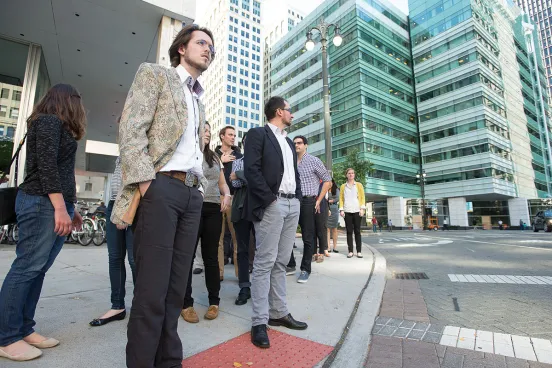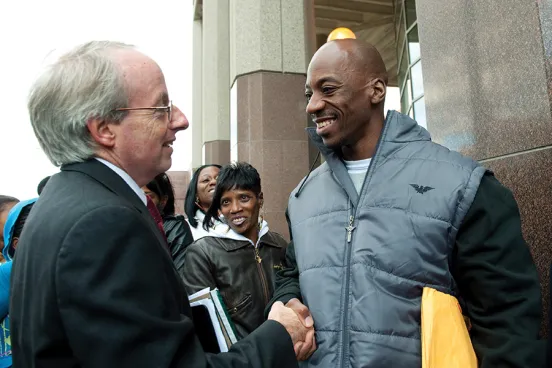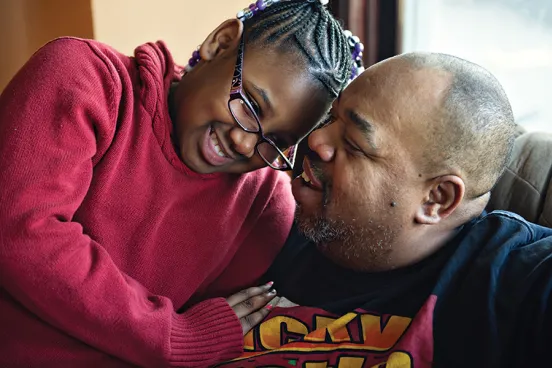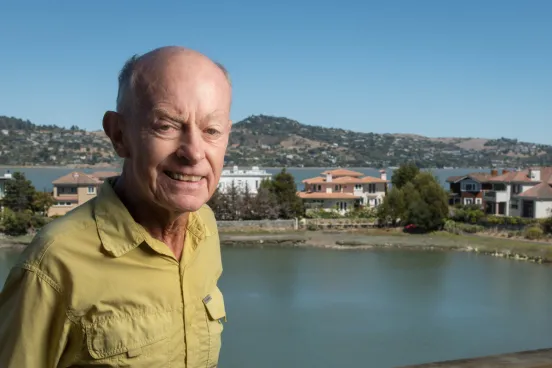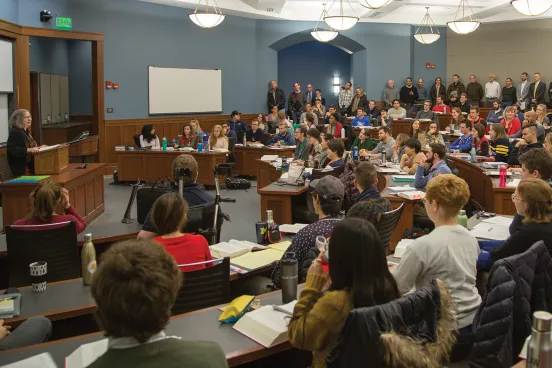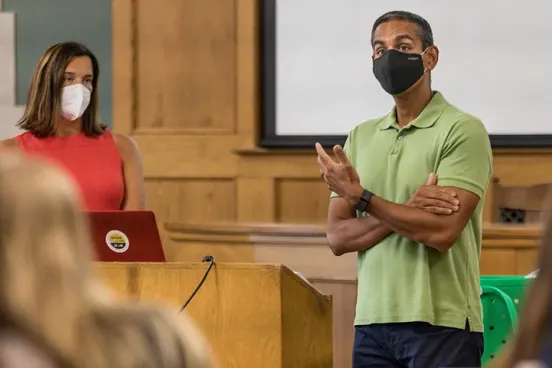Sarah R. Wasserman Rajec, ’04, a lecturer and teaching fellow at Stanford Law School, knew that the road to a tenure-track faculty position could be a bumpy one. That’s why she sought the insights of some of the best faculty members she knew: Those who teach at her alma mater.
Rajec was one of the alumni who attended the Future Law Professors Workshop at Michigan Law in the fall. She describes the experience as “the perfect mix of helpful, challenging, and welcoming.
“It was great to have so many professors share their experiences and wisdom about the academic job market. It can be an opaque process, and these insights and anecdotes helped to pull back the curtain,” she says. “My paper [‘Free Trade in Patented Goods: International Exhaustion for Patents’] benefited greatly from the feedback and discussion I had with former professors who came to my presentation—and what fun to be on the other side of the podium.”
All the preparation Rajec put into her pursuit of a faculty position paid off: “I’m thrilled to be joining the faculty of William & Mary Law School next year,” she says.
The workshop, which has been offered three times in recent years, includes panel discussions about topics such as surviving the Association of American Law Schools’ annual Faculty Recruitment Conference (FRC), and exploring fellowships and visiting assistant professor (VAP) programs. It also features mock job talks with faculty members and alumni. Some 30 Michigan Law faculty members participated in the workshop in 2013.
“Our goal is to help alumni present themselves in the best light possible,” says Jessica Litman, the John F. Nickoll Professor of Law and the chair of the committee that planned last year’s event. “Especially at a time like this, when many law schools are being conservative about hiring because applications and enrollments are down, we want to help people who went to Michigan Law maximize their chances.”
Adds Professor J.J. Prescott: “We know that planning and preparation are key when pursuing a faculty position. Too many people decide to go into academia and just aren’t ready.” Prescott is a member of the committee that organized the workshop, along with Litman; Professors Joan Larsen and Julian Davis Mortenson; Greta Trakul, attorney-counselor and judicial clerkship adviser in the Office of Career Planning; and Jenny Rickard, the Law School’s meetings and special events planner.
“We practice job talks with our alumni at the workshop to reduce anxiety when they’re doing it for real,” Prescott says. “We talk with them about ways they can approach their answers, what turns off people on a hiring committee, and how to talk about your field simply and straightforwardly, without using too much jargon.”
Professors’ advice about hiring committees and how to prepare and give a job talk were particularly useful, says Ben McJunkin, ’09, currently an associate at Covington & Burling in Washington, D.C., who is considering taking a teaching fellowship in the near future.
“The faculty panels provided me with a new perspective on the hiring process. I was also able to present an article in progress to a fantastic group of faculty members, and to sit in on similar presentations by other alumni,” McJunkin says. “Most of the other workshop participants were on the tenure-track teaching market last fall, so they were substantially further along in their academic careers than I am. Despite the fact that the workshop was primarily geared toward tenure-track candidates, I found it extremely helpful. The experience helped me realize that my work was further along than I had believed. It also provided helpful feedback that shaped the direction of my work as I prepare to seek teaching opportunities.”
The event allows attendees to meet up with Michigan Law faculty, as well as fellow alumni who are interested in teaching. “The Future Law Professors Workshop provided an invaluable opportunity to reconnect with UMLS faculty and practice my job talk in front of a tough and supportive audience,” says Amna Akbar, ’04, a visiting assistant professor at Moritz College of Law at Ohio State University who has accepted a tenure-track position there that will begin in the fall.
The workshop is held in September to give participants time to revise their papers and better prepare for the FRC, which typically is held in October.
“To be a good candidate, you have to not only produce high quality scholarly work and qualifications but also be able to present that work and that background to the hiring committees in a package that is attractive, easily understandable, and represents the ‘best you’ possible,” Prescott says. “That’s very hard to do well, and so especially given the hard application deadlines of the market cycle, timing is everything.”


